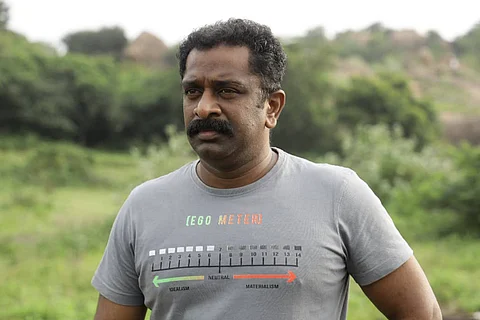

The Kerala High Court, on Friday, July 15, granted bail with conditions to Malayalam actor Sreejith Ravi who was arrested in connection with a child sexual abuse case on July 7. Sreejith submitted that he was suffering from a ‘behavioural disorder’, whose symptom is exhibitionism, and the court accepted these grounds for granting him bail, on the condition that his family ensures he gets medical help. It is to be noted that according to the World Health Organisation’s International Classification of Diseases 11th revision, exhibitionism disorder cannot be diagnosed unless it involves ‘consenting adults or solitary behaviours.’ Children cannot give consent to adults as per law, and Sreejith’s alleged exhibitionism was not a solitary behaviour — that is, it did not just involve him.
Sreejith was arrested on July 7 for allegedly flashing his genitals at two children on July 4, and booked under the Protection of Children from Sexual Offences (POCSO) Act. Earlier in 2016, he was arrested by the Ottappalam police for similarly flashing a group of school-going girl students. Various sections of the Protection of Children from Sexual Offences (POCSO) Act including Section 11(1) and 12 have been slapped against the 45-year-old actor.
In his bail application to the High Court, Sreejith said that he was under treatment for a behavioural disorder since 2016. Justice Bechu Kurian Thomas in his order said, “The medical certificate issued by a Consultant Neuro Psychiatrist dated 07.07.2022 reveals that petitioner is suffering from a behavioural personality disorder in which exhibitionism is a symptom/ sign. It is further stated that though petitioner had undergone psychotherapy till 2019, he is out of review since 2020. The medical certificate reveals that the petitioner needs medical attention. The parents and the spouse of the petitioner have expressed their willingness to do the needful. They were in fact providing him with the required treatment. However, with the onset of COVID-19, there has been a lapse as can be understood from the medical certificate.”
Accepting this reasoning, Justice Bechu Kurian Thomas granted Sreejith bail, and said, “The wife of the petitioner as well as the father of the petitioner shall file an affidavit before the jurisdictional court affirming and undertaking their willingness to provide adequate and effective regular outpatient medical treatment to the petitioner to prevent recurrence of further similar conduct by the petitioner.”
According to the WHO’s International Classification of Diseases 11th revision, “In order for the above Paraphilic Disorders to be diagnosed [including Exhibitionism Disorder], the individual must have acted on the arousal pattern or be markedly distressed by it. In addition, the following diagnosis may be assigned to describe persistent and intense patterns of atypical sexual arousal — manifested by sexual thoughts, fantasies, urges, or behaviours — that involve consenting adults or solitary behaviours, as long as either: 1) the person is markedly distressed by the nature of the arousal pattern and the distress is not simply a consequence of rejection or feared rejection of the arousal pattern by others; or 2) the nature of the paraphilic behaviour involves significant risk of injury or death (e.g., asphyxophilia or achieving sexual arousal by restriction of breathing).”
However, sexual interest in children cannot be justified on any grounds. This is because, firstly, children cannot consent, and therefore sexual interaction with them is not only unethical, but illegal. Dr Ujjwal Nene, a Pune-based sexual health consultant, had told TNM earlier that even if a person is diagnosed with a paraphilic disorder, “The diagnosis is not the individual’s fault – it is something that is not in their control. However, their behaviour and management of impulses is.” Individuals with disorders and/or those who exhibit sexual attraction towards children or significantly younger children are encouraged to seek help, such as psychotherapy. Read more on why sexual interest in children cannot be normalised.